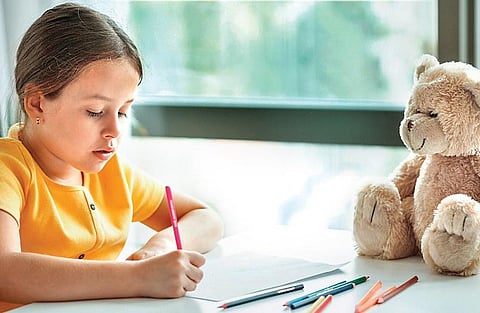

BENGALURU: Pecific learning disabilities (SLD) or learning disorders is a term used to describe a developmental disorder that impacts a child’s ability to read, comprehend, write or use language, and calculate. This is an umbrella term used to describe different types of learning issues like dyslexia, dysgraphia and dyscalculia. Children who suffer from learning disabilities are usually labelled as dull, lazy, and troublesome and so on, without people knowing the actual reason behind it.
Even though this condition impacts several children across the world, many parents often find it difficult to come to terms with the special needs of their child and are apprehensive about their child being labelled at a very early age. Due to prevailing social stigma, parents often choose to ignore the signs and symptoms of this condition at an early stage, which later leads to multiplication of complications especially once it starts manifesting as behaviour problems.
Therefore, it is important to acknowledge and address the issue right from an early age. Increasing sensitisation about SLD holds the key towards building a better and more inclusive, accessible and sustainable world for such children. There are several myths regarding SLDs and many people believe that children with learning disabilities have low intelligence but the fact is such children are as smart as other children of their age.
These children just need to be taught in ways that are tailored to their unique styles of learning. In order to increase public awareness, which can be helpful in providing early diagnosis to such children, it is crucial to understand the various types of learning, the signs and symptoms and the myths surrounding the condition.
Types of learning disabilities
1.Dyscalculia: It affects a person’s ability to understand numbers and learn math facts
2.Dysgraphia: Affects handwriting ability and fine motor skills
3. Dyslexia: Affects reading and related language-based processing skills
4 .Non-verbal learning disabilities: An individual will have trouble in interpreting non-verbal cues like facial expressions or body language and may also have poor coordination
5. Oral/written language disorder and specific reading comprehension deficit learning disabilities: This affects an individual’s understanding of what they read or of spoken language. The ability to express one’s self with oral language may also be impacted.
Therapy for children with special needs can start as early as five months of age, as brain development happens at a faster pace during the first five years of life. Therefore, if the doctors are able to identify the developmental symptoms early and can intervene at an early stage, then the chances of success for the child are higher.
Furthermore, even though parenting is an endless task, parents need to understand that they have to be more delicate with children with special needs. In order to make an inclusive environment for such children, teachers and parents have to be trained in terms of picking up the right signals and thinking it through before bringing up the issue with the parent. Only with increased awareness, can we ensure a more inclusive society for such children. (The author is a consultant, paediatric neurology, Aster CMI Hospital
Signs of early developmental delays
Incorrect, distracted or slow reading and writing
Lack of clarity in written and vocal expression
Inaccurate mathematical reasoning and difficulty in remembering number or facts
Difficulty in following and retaining visual sequences
Missing of words, phrases and sentences